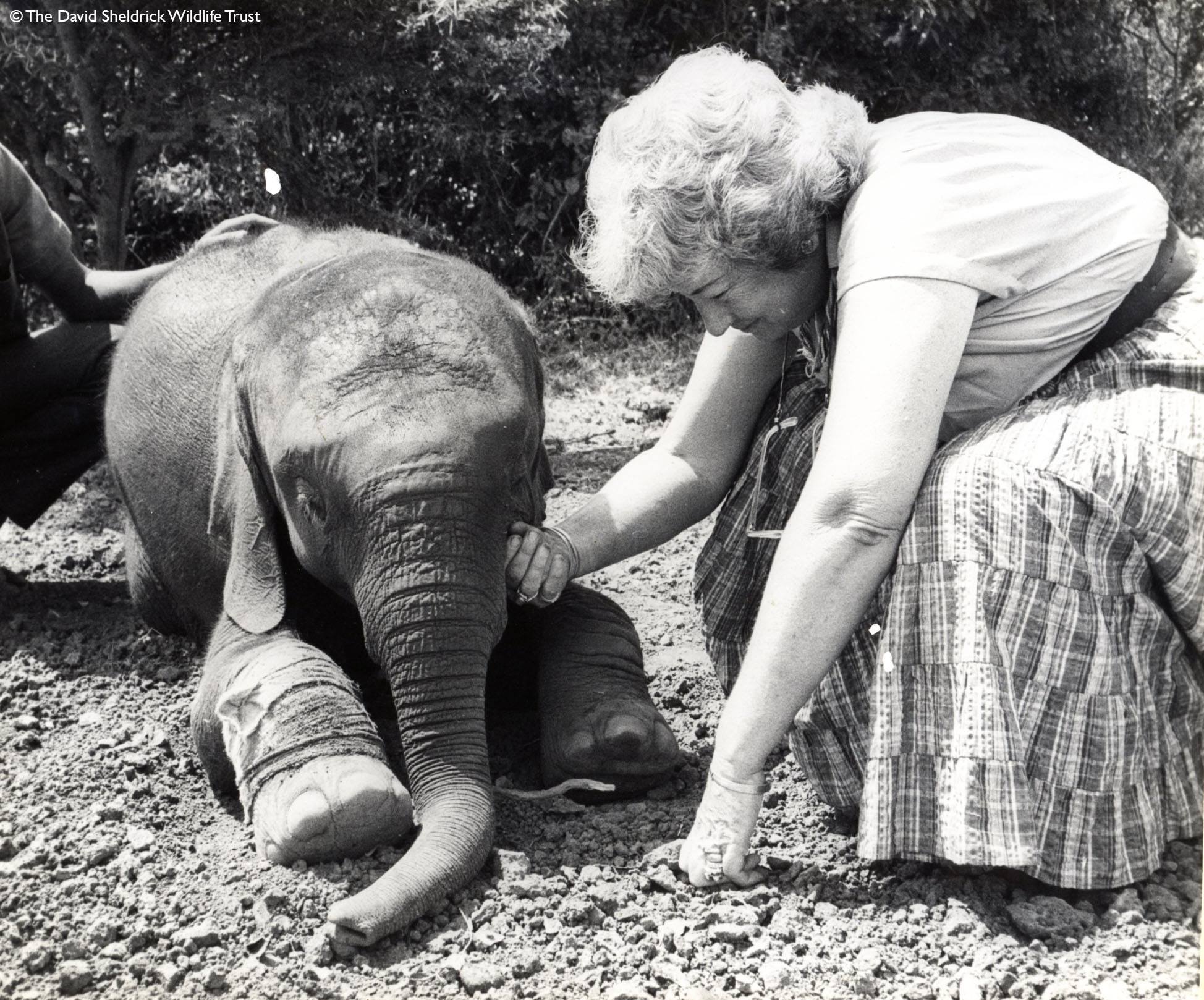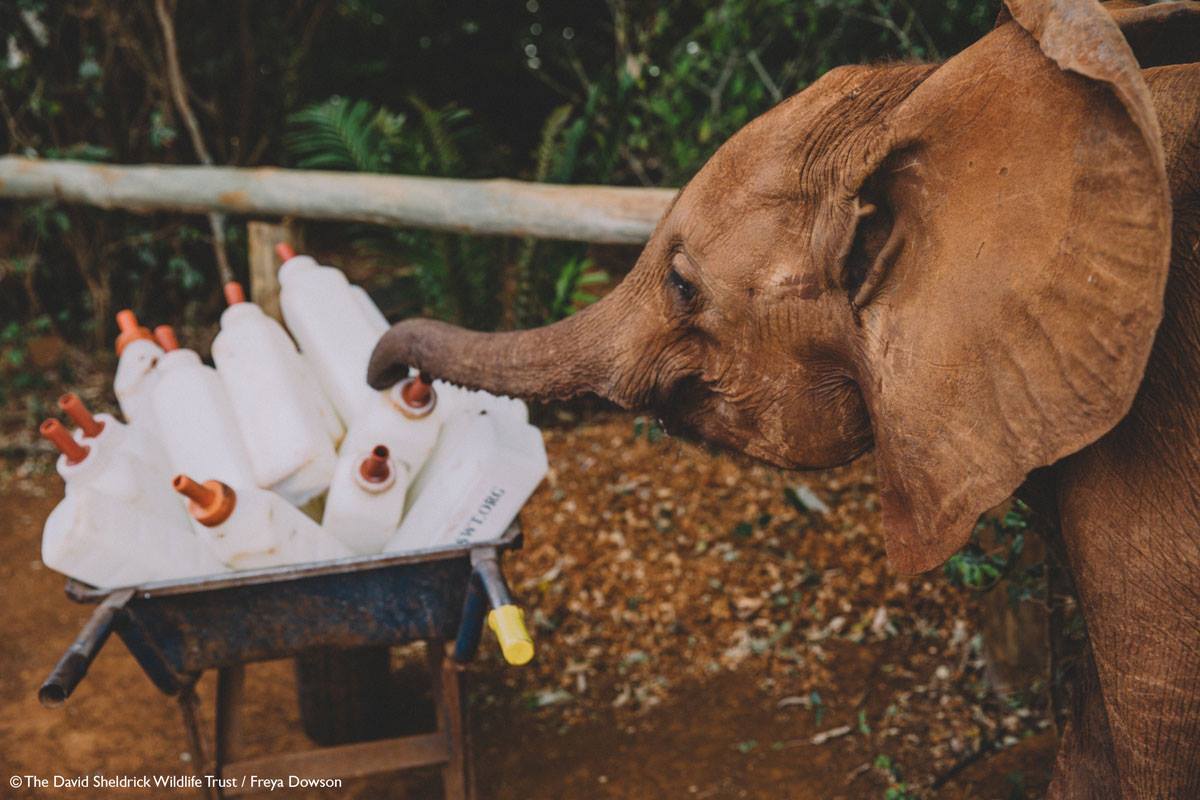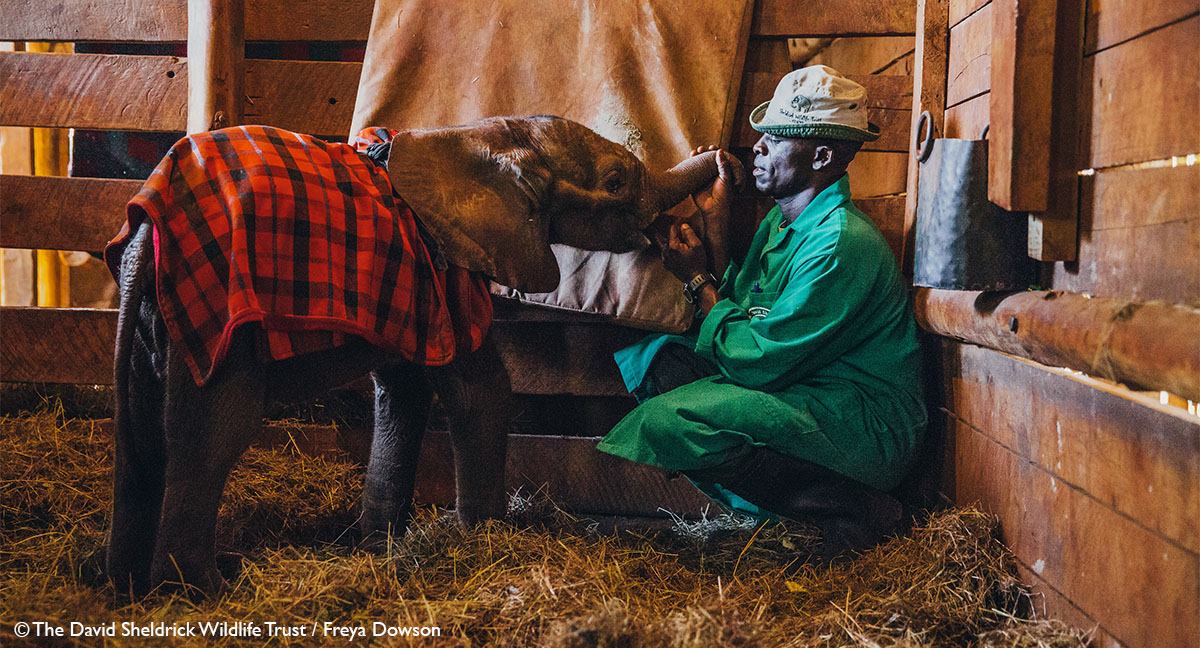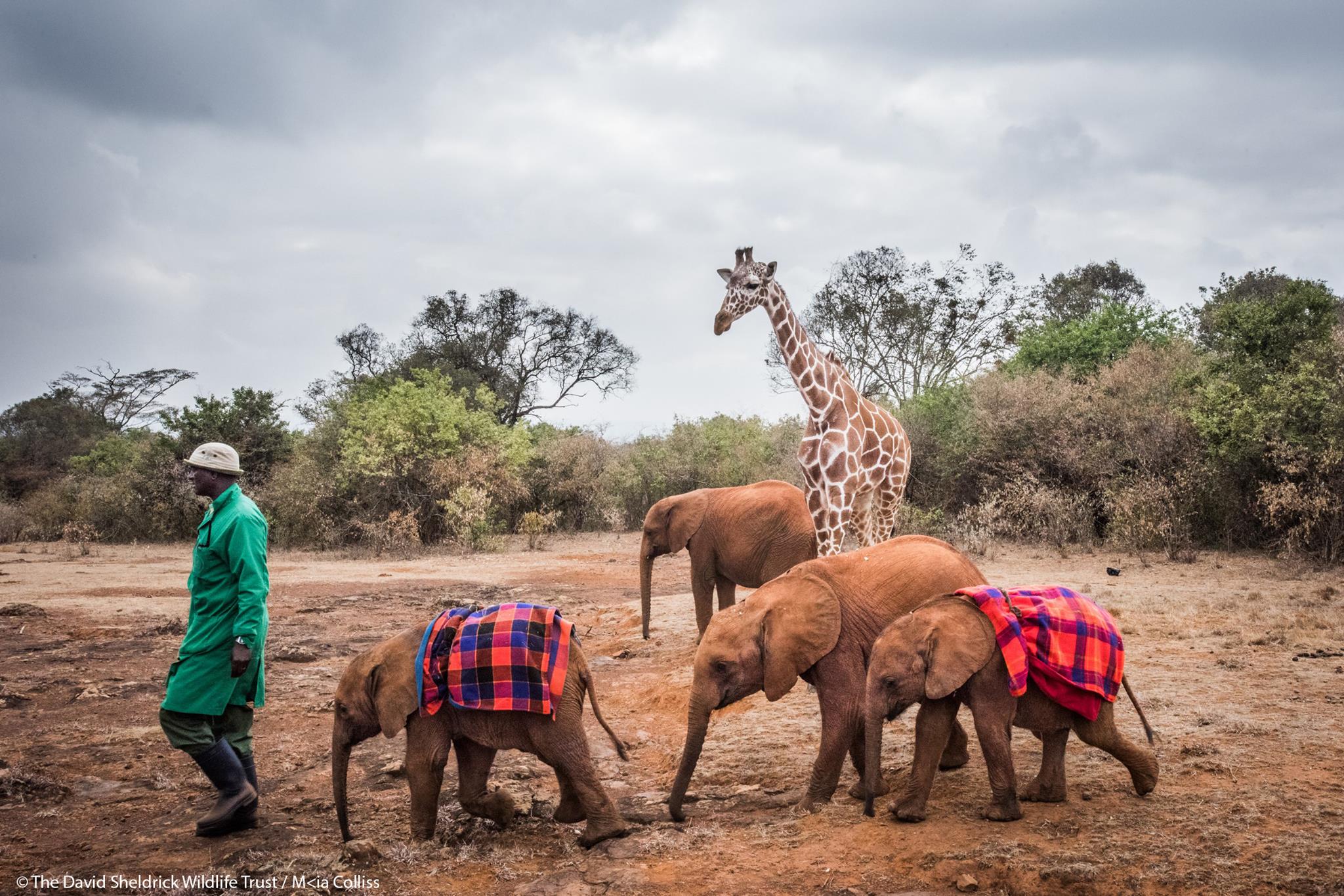Since this project began in 1977, Dame Sheldrick has successfully hand-reared more than 200 elephants, most of whom have been rehabilitated and released back into the wild. Now in her 80’s, she continues to run this nonprofit along with her daughter, Angela. A visit to meet the latest group of calves, as baby elephants are called, is a major highlight of any trip to Kenya.

Dame Sheldrick with one of her orphans.
Bringing Up Baby (Elephants)
Elephants are sensitive creatures. And so when they lose their family due to ivory poaching or environment issues, such as drought, these babies are often left feeling traumatized and full of grief. Many of these little—and not so little—ones also arrive still needing their mama’s milk. (Fun fact: Elephants need breastmilk the first two to three years of life.) Thankfully, their adopted new mom, Dame Sheldrick, has spent decades perfecting a formula milk that does the job.

A team of “keepers” serve as the rotating cast of human caretakers who feed the babies milk on demand, take them for walks to explore their surroundings, and, occasionally, cuddle up with them at night. Much like human infants and toddlers, baby elephants are inclined to form a very strong bond with their keepers, and as result, require endless amounts of patience and affection. They love to play, too, and that means something different for each adorable personality.

When the elephants are ready to leave the nest (usually, around age four), they begin to slowly transition to one of three special areas in Tsavo East National Park, and from there, they’re gradually reintegrated back into the bush, often joining wild herds. How long this transition takes depends on the individual, but most complete the process by age 10. Heart-warmingly, some come back to visit their human families and show off their wild-born babies or seek help if they’re sick or injured.
While DSWT is primarily known for its hand-rearing of elephants, they also run a successful rhino orphan project. Other programs include mobile veterinary, anti-poaching, and de-snaring units as well as vital conservation and community outreach projects.

Plan Your Visit
Any trip to Kenya with Extraordinary Journeys can include a stopover at the Orphans’ Nursery in Nairobi National Park. We offer three itineraries that already have a built-in visit: our 12-Day and 9-Day Fly-In Safari packages as well as our new 11-Night Kenya Conservation Safari. But, really, any adventure can be customized.
We also offer opportunities to spend time with elephants at other conservation-based camps across the continent. Let us know what you’re looking for and we can set you up with the elephant safari of your dreams. Call or email us to learn more!